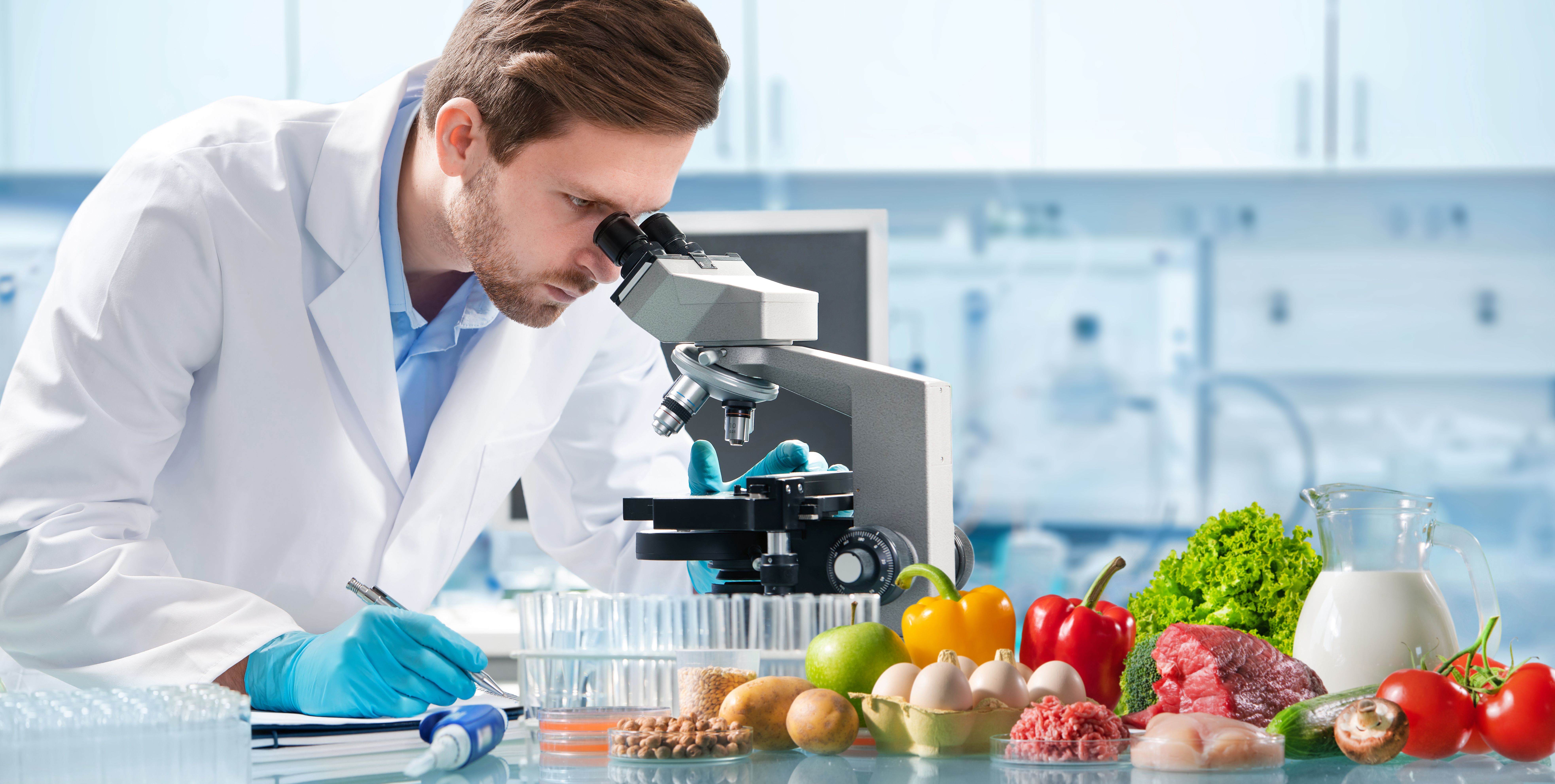AOAC International Honors Analytical Scientists in Food Analysis
Nearly 700 analytical scientists were honored at this year’s AOAC International Annual Meeting, held in New Orleans, Louisiana from August 25–August 30, 2023 (1). More than a dozen awards were given, all of which recognized scientific excellence across multiple fields, including method development, expert review panels, editorial contributions to the Journal of AOAC International, and technical service. An additional 167 members of the organization were recognized for their years of service.
Food quality control concept | Image Credit: © Alexander Raths - stock.adobe.com

“All of us doing our part is making our food supply safer and more nutritious, thus saving lives,” said John Szpylka, the president of AOAC, in a press release. “This work protects everyone; all of our loved ones and everyone else.”
The following is a list of the winners who were presented with awards at the conferece:
- Harvey W. Wiley Scholarship Award: Rosalie Ormos, Universities of Stuttgart and Hohenheim, Germany.
- AOAC/Eurofins Foundation “Testing for Life” Student Award: Yigong Guo, The University of British Columbia, British Columbia, Canada; Hieu Le, Carleton University, Ontario, Canada; Shandry Tebele, University of Cape Town, Cape Town, South Africa; Zhihan Xian, University of Georgia, Griffin, Georgia, USA; and Yaqi Zhao, Florida State University (FSU), Tallahassee, Florida, USA.
- AOAC International/Herbalife Scholarship: Ellie Abraham, The Pennsylvania State University, State College, Pennsylvania, USA; and Pushpa Deore, Vasantdada Sugar Institute (VSI), Maharashtra, India.
- AOAC International/SCIEX Rising Star Award: Hassan Zia, University of Ljubljana, Berlin, Germany.
- Inés Cereijo Technical Division of Reference Materials (TDRM) Student Award: Andres F. Ortega, Cornell University.
- Method of the Year – Chemistry: AOAC Official MethodSM 2020.07 “Measurement of Available Carbohydrates in Cereal and Cereal Products, Dairy Products, Vegetables, Fruit, and Related Food Products and Animal Feeds”.Method Authors: Barry V. McCleary, FiberCarb Consultants; and Ciara McLoughlin and Vincent A. McKie, Neogen Corp.
- Method of the Year – Microbiology: AOAC Official MethodSM 2021.08 “Assurance GDS for Cronobacter Tq II in Infant Formulas, Infant Cereals, Ingredients, and Environmental Samples.” Method Authors: Andrew Lienau, MilliporeSigma; and M. Joseph Benzinger Jr., Benjamin Bastin, Erin Crowley, Kateland Koch, and Wesley Thompson, Q-Laboratories.
- Technical Service of the Year Award: John Szpylka, AOAC President.
- Achievement in Technical and Scientific Excellence: Special Guest Editor Section of the Journal of AOAC International on “Green and Roasted Coffee Authentication: Species, Origin, and Diluent Methods of Analysis,” edited by Brian Schaneberg, Institute for Food Safety & Health.
- Expert Review Panel of the Year: Expert Review Panel for Stakeholder Program on Infant Formula and Adult Nutritionals (SPIFAN) Nutrient Methods. Panel Chair: Darryl Sullivan, Eurofins Scientific. Members: Sneh Bhandari, Consultant; Sean Austin, Esther Campos-Giménez, Christophe Fuerer, Société des Produits Nestlé S.A.; Hans Cruijsen, Martine van Gool, FrieslandCampina; Brendon Gill, Fonterra Cooperative Group; Estela Kneeteman, Instituto Nacional de Tecnologia Industrial; Karen Schimpf, Philip Haselberger, Abbott Nutrition; Melissa Phillips, Catherine Rimmer, NIST; Maria Ofitserova, Pickering Laboratories; Thomas Vennard, Shay Phillips, Reckitt; Yannis Vrasidas, Consultant; David Woollard, Consultant; and Jinchuan Yang, Waters Corp.
- Best Manuscript Award: “Improving the QuEChERs Liquid/Liquid Extraction of Analytes with Widely Varying Physicochemical Properties: Example of 201 Veterinary Drugs in Milk” by Anton Kaufmann, Kantonales Labor Zürich, Fachhochschule Burgdorf, Switzerland.
- Section of the Year Award: AOAC Southern Section.
- First-Time Poster Contest: Jake Carter, US Food and Drug Administration; Sarah Dowd, Waters Corporation; Alejandro Garrido-Maestu, International Iberian Nanotechnology Laboratory; Autumn Phillips, Inorganic Ventures; and Mengliang Zhang, Middle Tennessee State University.
For the full list of leaders featured in this awards list, visit the 137th AOAC Annual Meeting and Exposition Awards page.
References
AOAC INTERNATIONAL. Meeting Emphasized the Importance of “Doing Your Part”. AOAC INTERNATIONAL 2023. https://www.aoac.org/news/analytical-science-leaders-honored-at-aoac-international-2023-annual-meeting/ (accessed 2023-10-05)
Extracting Estrogenic Hormones Using Rotating Disk and Modified Clays
April 14th 2025University of Caldas and University of Chile researchers extracted estrogenic hormones from wastewater samples using rotating disk sorption extraction. After extraction, the concentrated analytes were measured using liquid chromatography coupled with photodiode array detection (HPLC-PDA).
Analytical Challenges in Measuring Migration from Food Contact Materials
November 2nd 2015Food contact materials contain low molecular weight additives and processing aids which can migrate into foods leading to trace levels of contamination. Food safety is ensured through regulations, comprising compositional controls and migration limits, which present a significant analytical challenge to the food industry to ensure compliance and demonstrate due diligence. Of the various analytical approaches, LC-MS/MS has proved to be an essential tool in monitoring migration of target compounds into foods, and more sophisticated approaches such as LC-high resolution MS (Orbitrap) are being increasingly used for untargeted analysis to monitor non-intentionally added substances. This podcast will provide an overview to this area, illustrated with various applications showing current approaches being employed.
Regulatory Deadlines and Supply Chain Challenges Take Center Stage in Nitrosamine Discussion
April 10th 2025During an LCGC International peer exchange, Aloka Srinivasan, Mayank Bhanti, and Amber Burch discussed the regulatory deadlines and supply chain challenges that come with nitrosamine analysis.






